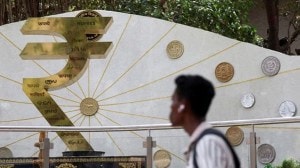Why Sri Lanka’s proposed anti-terror law is facing widespread criticism
The proposed law is meant to replace the draconian Prevention of Terrorism Act, which gives security personnel virtual carte blanche in detaining terror suspects.
 There has been immense international pressure, including from the UN Human Rights Council, on Sri Lanka to repeal the 1978 law. (File Photo)
There has been immense international pressure, including from the UN Human Rights Council, on Sri Lanka to repeal the 1978 law. (File Photo) Lawyers, legal scholars, human rights activists, media, and at least one religious leader in Sri Lanka have asked the government not to take the Anti Terrorism Bill (ATB) to Parliament, and have demanded wider consultations on the provisions of the draft law that one newspaper has called a “remedy worse than malady”.
The proposed law is meant to replace the draconian Prevention of Terrorism Act, which gives security personnel virtual carte blanche in detaining terror suspects. It was widely misused during the three-decade civil war, leading to disappearances and deaths in custody of both Tamil and Sinhala youths in the 1980s, 1990s and 2000s. There has been immense international pressure, including from the UN Human Rights Council, on Sri Lanka to repeal the 1978 law.
However, nothing in the ATB suggests it will be more just or democratic than the existing law. It has been widely criticised as a potential tool to suppress dissent and protest. According to the Colombo think tank Centre for Policy Alternatives (CPA), the Bill has only one redeeming feature: confessions before the police cannot be presented in court as evidence, which is allowed in the existing law.
The proposed law
The main criticism of the draft law — published by the Gazette of Sri Lanka on March 22 — is that its definition of a terrorist act is not precise, and that it widens the scope of what is terrorism by including offences that can be prosecuted under other national laws.
Thus, intimidating the public, wrongfully compelling the government to act or not act in a particular way, preventing the government from functioning, violating the country’s territorial integrity or infringing on its sovereignty, propagating war or hate speech and inciting violence, are all terrorist acts under the proposed law.
Ambika Satkunanathan, a former Commissioner of the Human Rights Commission of Sri Lanka, has pointed out that this definition does not meet internationally accepted norms on what constitutes a terrorist act.
“Not only does the definition of terrorism have to be precise but it must also adhere to the principles of necessity, proportionality and legality… The definition in the Anti-Terrorism Bill is broad and contains undefined elements, such as acts ‘violating territorial integrity or infringement of sovereignty of Sri Lanka or any other sovereign country’… Historically, even advocating for certain constitutional arrangements, such as federalism, has been construed and labelled as causing harm to the territorial integrity and sovereignty of Sri Lanka,” Satkunanathan wrote in an analysis of the Bill in the citizen journalism website GroundViews.
The Bill has also moved hate speech into the terrorism category from a normal criminal offence.
Executive powers
The President can proscribe organisations on the recommendation of the Inspector General of Police or the government if he “has reasonable grounds to believe” the organisation is engaged in an act amounting to an offence under the proposed law, or is acting in “an unlawful manner prejudicial to the national security of Sri Lanka”. Banned organisations cannot recruit members or conduct programmes and meetings. The ban can be renewed every year.
President Ranil Wickremesinghe, who at this time last year advised his predecessor Gotabaya Rajapaksa to listen to the protesters on Galle Face asking for his resignation, has been criticised for turning on the same protesters once he was in office.
Critics believe that silencing the Argalaya, as the protest movement is known, and outlawing likely protests against the tough economic reforms that have to be implemented as part of the IMF’s bailout package for Sri Lanka, was a consideration guiding the draft legislation.
The CPA has flagged provisions in the Bill that allow the President to declare any public space a prohibited area for an indefinite period, adding to the suspicion that it “may be used to target legitimate dissent in the country”; and the weakening of the safeguards against detention, which will no longer require the consent of the Defence Minister, and can be ordered by a DIG-rank police officer.
Powers to military
Satkunanathan has also pointed out that the ATB gives wide law enforcement powers to the armed forces, including to prevent offences from being committed. “For instance, a military officer has the power to arrest a person if he has ‘reasonable grounds to believe (a person) has committed an offence’… This can be interpreted broadly and used to arrest people with no evidence and without following due process,” she has written.
The proposed involvement of the military in the new law “contravenes best principles on policing, further militarizes law enforcement and creates a de facto state of emergency… The military is not trained in law enforcement, uses violence as a first response rather than last resort, and historically has been documented to have committed grave human rights violations,” she has written.
Widespread criticism
The Bar Association of Sri Lanka (BASL) has urged the government to not ram the Bill through, saying there is no room for legislation that curtails individual liberties and undermines the rule of law.
The international advocacy Human Rights Watch has said the proposed legislation would “empower the authorities to systematically violate fundamental human rights”, and called on the government to withdraw the Bill.
Cardinal Malcolm Ranjith, the Archbishop of Colombo, who has been pushing the government to make public the findings of its investigations into the 2019 Easter bombings, has called for widespread opposition to the proposed law as it sought to curb dissent.
The conservative Island newspaper, which supported the existing anti-terror law as an effective instrument against the LTTE, has advised the government to “deep-six” the Bill, describing it as a “remedy worse than malady”.
- 01
- 02
- 03
- 04
- 05






































